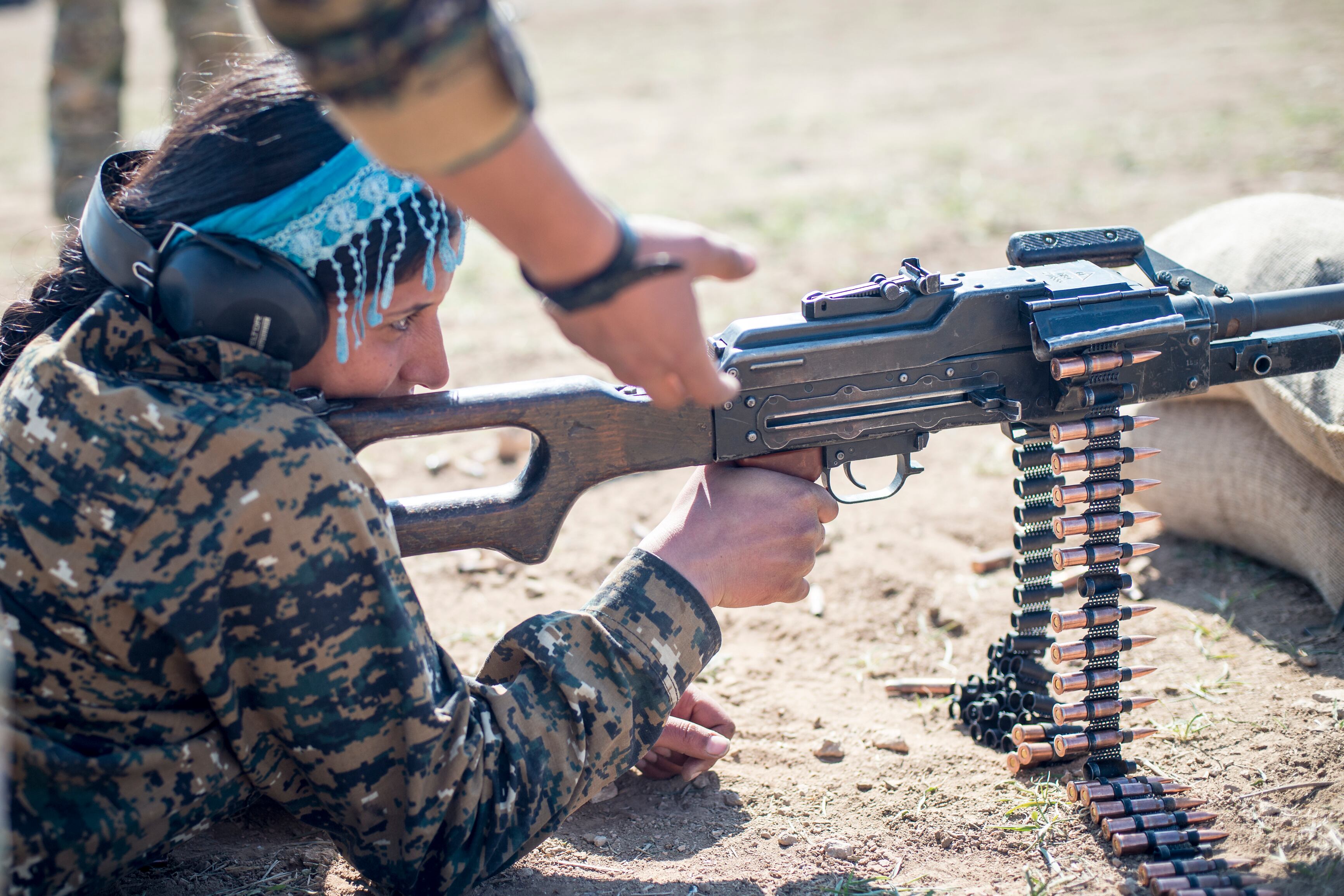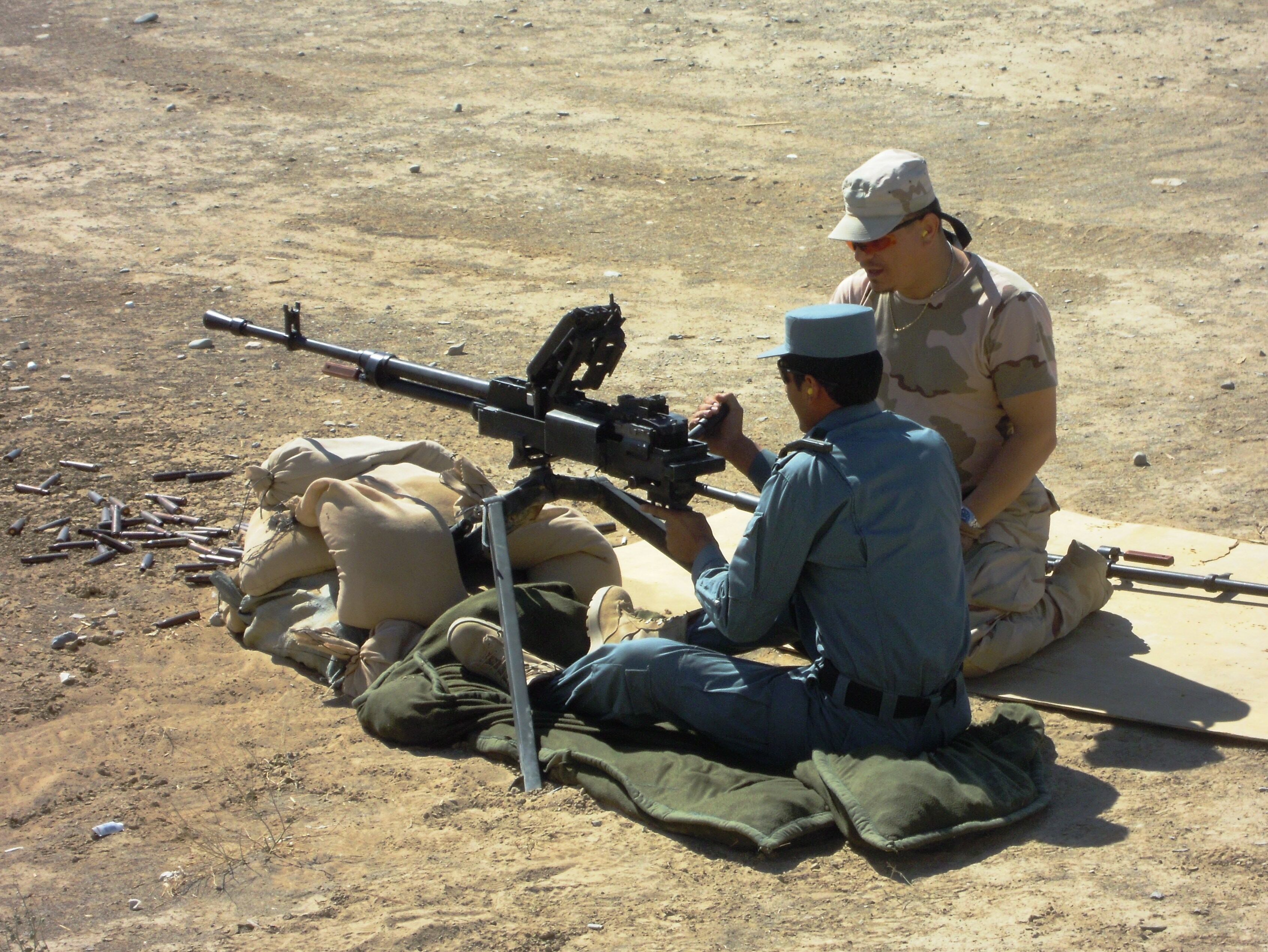Kalashnikov Concern — the Russian firm renowned for designing the AK-47 assault rifle — was caught off guard by U.S. Special Operations Command’s desire to “reverse engineer” and “domestically produce” Russian-styled weapons.
In statements through state-controlled media, Russian leaders and industry officials warned the U.S. military not to copy its coveted weapon designs.
One problem: the solicitation is more than a year old and portions of the contract have already been awarded.
In a small business solicitation from April 2017, SOCOM asked American businesses “to explore whether it is feasible to reverse engineer or reengineer and domestically produce” a 7.62 x 54mm belt-fed light machine gun that resembles a PKM, and a 12.7 x 108mm heavy machine gun that resembles a Russian-designed NSV.
That solicitation was recalled in a National Interest article this month, sparking anger from senior Russian officials.
“Several countries hold licenses for manufacturing Russian machine guns of this model, but the U.S. is not among them," Russian senator Viktor Bondarev, who helms the Russian parliament’s Committee on Defense and Security, told state media last Wednesday.
“We should prevent any attempts to use Russian weapons developments without our permission,” Bondarev added. "If U.S. intentions evolve into real actions ... then we should react decisively and promptly.”
SOCOM confirmed to Military Times that contracts for the first phase, the research portion, of the solicitation have already been awarded to Dillon Aero Inc., Knight’s Armament Company, and McNally Industries.
SOCOM said the second phase, to demonstrate a production capacity, is already underway. Those contracts have yet to be awarded.

The command wants to build the production base in the U.S. to better supply surrogate forces, according to the solicitation.
“Foreign made weapons lack interchangeability and standardization which hinders field and depot-level part replacement,” the solicitation reads. “Developing a domestic production capability for foreign-like weapons addresses these issues while being cost effective as well as strengthens the nation’s military-industrial complex, ensures a reliable and secure supply chain, and reduces acquisition lead times.”
The Security Assistance Monitor, a group that tracks and analyzes U.S. security assistance programs, said that moving production stateside could have several other benefits for SOCOM.
“It adds risk when you have to buy them from former Soviet states or other countries,” said Colby Goodman, director of the Security Assistance Monitor.
“There could be concerns about the quality of the weapons,” Goodman added. “But there are also concerns about the U.S. associating with individuals who might be involved in some shady or illicit activities, and I think there has been an increasing concern that U.S. laws are becoming more restrictive on supporting China and Russia.”
Kalishnikov’s parent company, Rostec, is a state-owned enterprise in Russia.
Speaking to state media, Rostec said they were unaware of SOCOM’s plans, adding that the manufacture of Russian small arms in the U.S. without permission from them would be considered intellectual theft.

“If someone wants to carry out this work legally ... they should approach Rosoboronexport [Russia’s state arms exporter] and discuss it. Otherwise, this would amount to the illegal copying of Russian innovations or theft, simply speaking,” Rostec said in a statement.
There are so many knock-offs of older Russian weapons, though, that Rostec’s complaint may not hold much water.
Foreign copies of both the NSV and PK machine guns have proliferated since the weapons were fielded in the late 1960s and early 1970s.
Small changes in an American-designed system could also allow reproduction of NSV and PK machine guns while still honoring the original copyrights.
The SOCOM solicitation said applicants will have to manufacture the weapons only on U.S. territory, using only U.S.-produced materials and employing only U.S. citizens.
That clear line of development is important for accountability, Goodman said.
“It’s maybe not a bad idea to have the U.S. engage in this,” Goodman said. “The trafficking risks and the production risks for the U.S. military to be engaged in shady deals are significant."
SOCOM’s quest for a domestic manufacturer could also have been tied to the issue of Russian sanctions, Goodman added.
In July 2014, the U.S. State Department laid out sanctions against a slew of Russian companies, to include Kalashnikov Concern.
Kyle Rempfer was an editor and reporter who has covered combat operations, criminal cases, foreign military assistance and training accidents. Before entering journalism, Kyle served in U.S. Air Force Special Tactics and deployed in 2014 to Paktika Province, Afghanistan, and Baghdad, Iraq.





